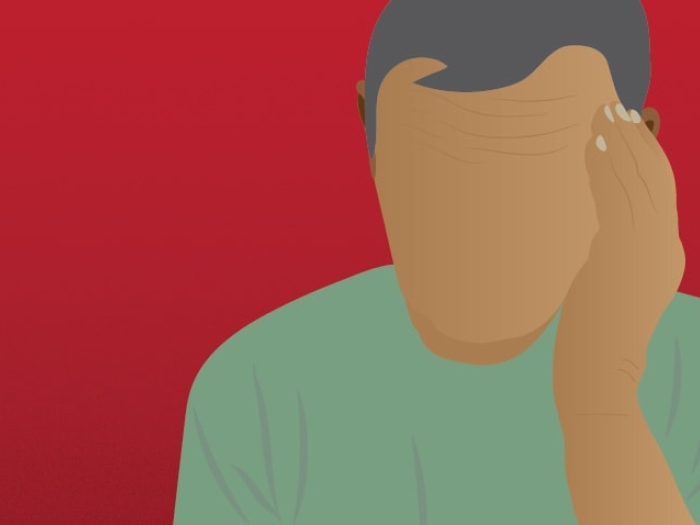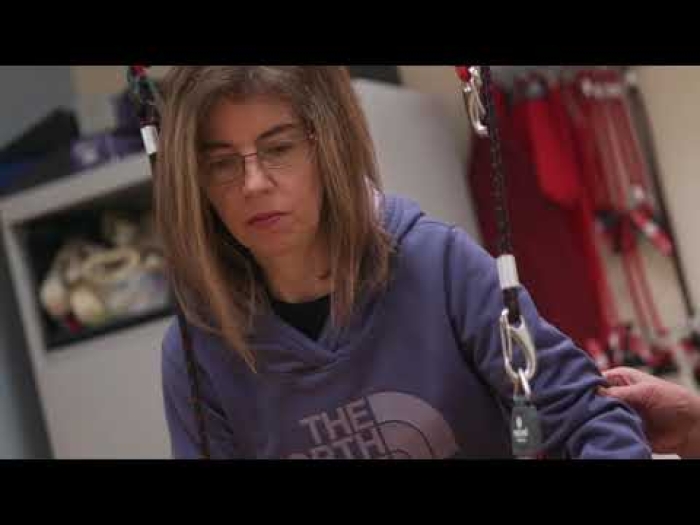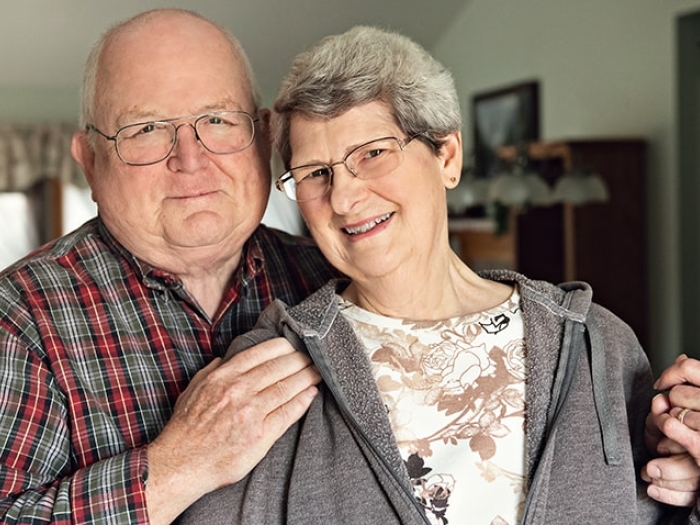A family history of heart problems hadn’t affected Jill Weatherly — until one July day when that all changed.
11:33 AM
Author |

Jill Weatherly and her husband were on their way to a leisurely late-morning breakfast on July 25, 2015. She was driving when she lost most of her speech and her right side went numb.
With amazing presence of mind, she got out of the car, walked around to the passenger side and got in. Her husband drove the rest of the way — right to the doors of the University of Michigan Health System Emergency Department.
By the time they arrived, she had lost speech entirely and couldn't move.
"They saved my life," Weatherly says of the U-M stroke team, which rapidly administered the clot-busting medication tPA. "I got speech and motion back within 15 minutes. And every 15 minutes or so I could see improvement. I'm really grateful for the care."
When you go through something like this, you're so very grateful for your friends and family.Stroke survivor Jill Weatherly
Fast action for stroke symptoms
Today, Weatherly's advice to anyone feeling the warning signs of stroke: "Get medical help when your symptoms start." That's what she did with the help of her husband, and it possibly changed her prognosis.
"They had to lift me out of the car," she recalls.
Weatherly's diagnosis was ischemic stroke, and she stayed in the hospital for three days. "I left with 80 percent function back. Now I'm 90 to 95 percent back. I passed all the strength and sensation tests."
The experience has changed her outlook, she says. "There are a lot of cardiac problems and stroke in my family history, but I wasn't concerned because I never had any problems. I can't control my genetics, but I've learned that I can control the things I can control, like diet and exercise."
A time to be grateful
Today, U-M neurologists Eric Adelman, M.D., and Vikas Kotagal, M.D., manage her care. She is receiving physical therapy and is driving again. "They had occupational therapy at U-M MedRehab, where they assessed me for driving and I passed the driving test," she says.
Weatherly is a part-time administrator at her husband's engineering testing lab and went back to work pretty quickly after her stroke. It's also brought her closer to her family.
"My family has been great through all of this," she says. Weatherly's sons are 17 and 22. "I think it was sort of scary for them, you know. But it was the summer and school was out. My 17-year-old drove me all over the place. It was a special time for us. When you go through something like this, you're so very grateful for your friends and family."

Explore a variety of health care news & stories by visiting the Health Lab home page for more articles.

Department of Communication at Michigan Medicine
Want top health & research news weekly? Sign up for Health Lab’s newsletters today!





